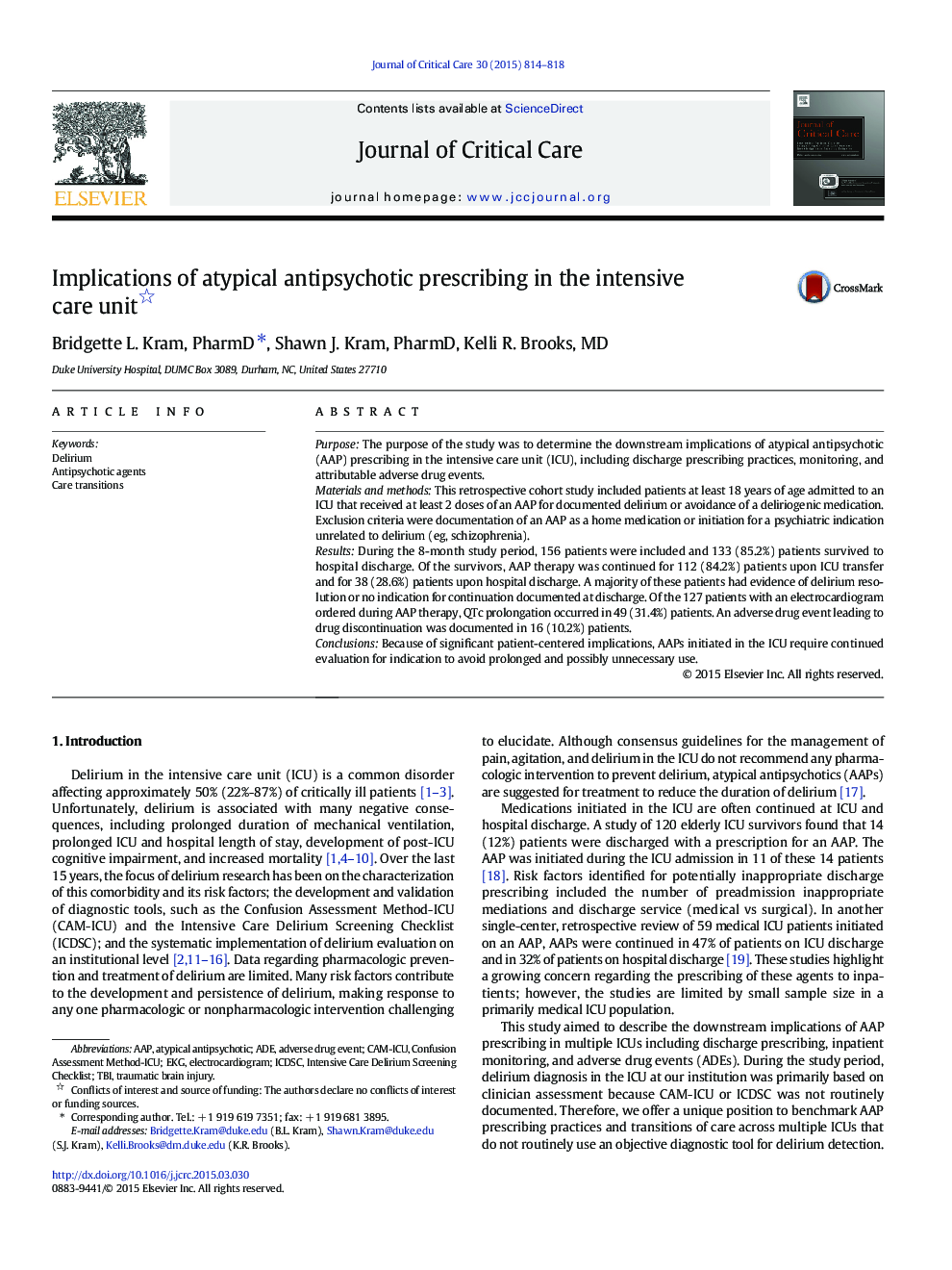| Article ID | Journal | Published Year | Pages | File Type |
|---|---|---|---|---|
| 2764538 | Journal of Critical Care | 2015 | 5 Pages |
PurposeThe purpose of the study was to determine the downstream implications of atypical antipsychotic (AAP) prescribing in the intensive care unit (ICU), including discharge prescribing practices, monitoring, and attributable adverse drug events.Materials and methodsThis retrospective cohort study included patients at least 18 years of age admitted to an ICU that received at least 2 doses of an AAP for documented delirium or avoidance of a deliriogenic medication. Exclusion criteria were documentation of an AAP as a home medication or initiation for a psychiatric indication unrelated to delirium (eg, schizophrenia).ResultsDuring the 8-month study period, 156 patients were included and 133 (85.2%) patients survived to hospital discharge. Of the survivors, AAP therapy was continued for 112 (84.2%) patients upon ICU transfer and for 38 (28.6%) patients upon hospital discharge. A majority of these patients had evidence of delirium resolution or no indication for continuation documented at discharge. Of the 127 patients with an electrocardiogram ordered during AAP therapy, QTc prolongation occurred in 49 (31.4%) patients. An adverse drug event leading to drug discontinuation was documented in 16 (10.2%) patients.ConclusionsBecause of significant patient-centered implications, AAPs initiated in the ICU require continued evaluation for indication to avoid prolonged and possibly unnecessary use.
